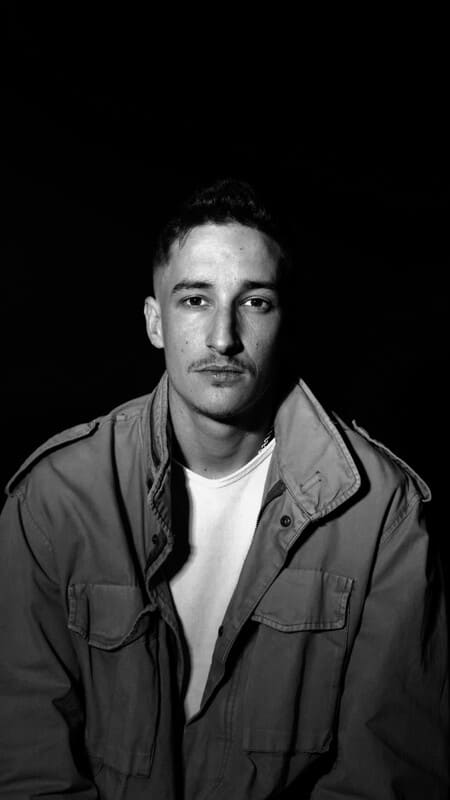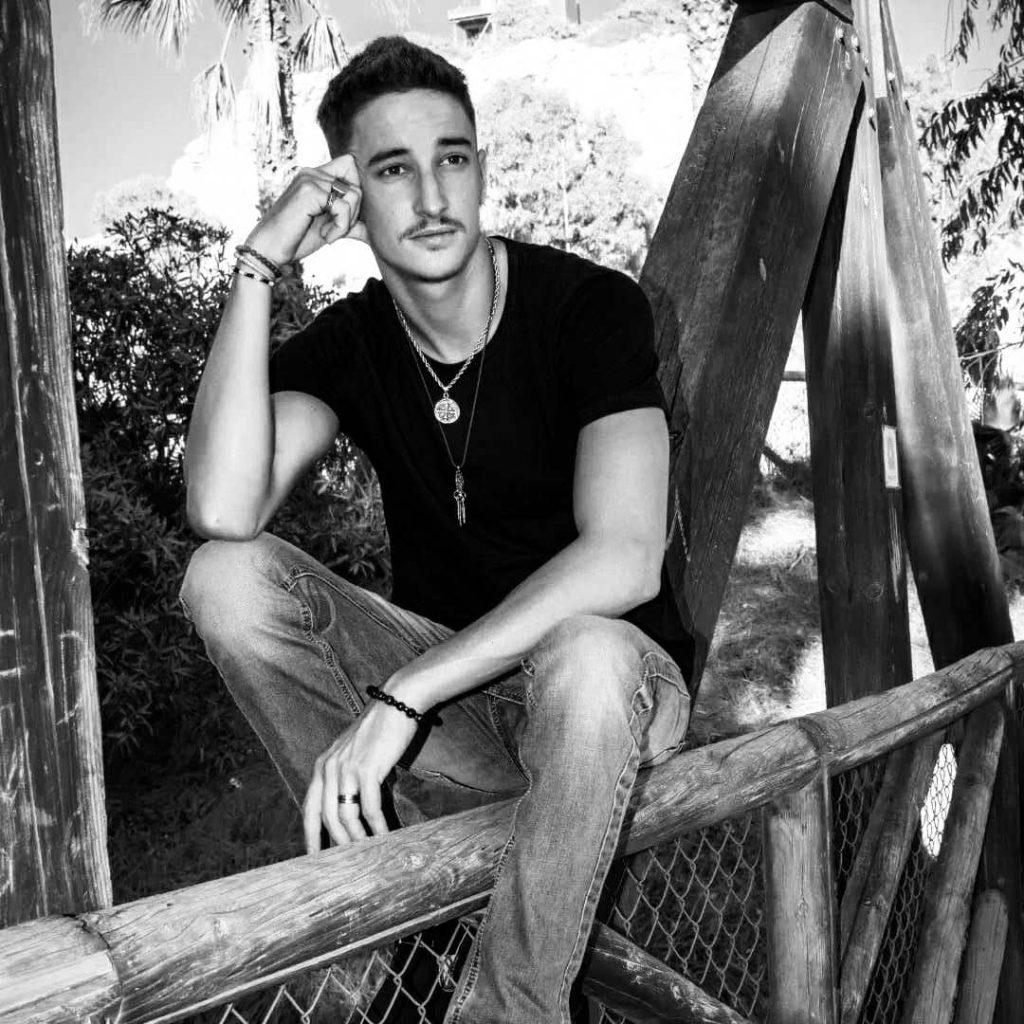
Who is Kevin CorSan?
I am a director, screenwriter, actor, producer, and art director. I began my career in theatre at the age of eight and, by nineteen, I had specialized in on-camera performance while also studying history, physics, and semiotics. I worked in the art department on various productions, taking on roles such as assistant and props master, which allowed me to deeply understand the dynamics of each team and the visual construction of an audiovisual work.
My specialty as an art director lies in creating models and set recreations at different scales—scenes capable of transporting the viewer to unique places, from earthly landscapes to imaginary worlds.
Later, I produced a marine documentary in collaboration with biologists from the University of Almería and several scientific associations. It was filmed over nine days on the open sea, studying cetaceans. In 2022, I was nominated at the Málaga Film Festival for funding my first short film. Although I didn’t receive the grant, I decided to self-finance, produce, and direct my own project, marking the beginning of my path as a director and producer.
Do you remember the exact moment you fell in love with cinema?
I think I’ve always been in love with cinema, even before I knew it. Films like The Lord of the Rings or The Mask of Zorro awakened in me the desire to perform, to inhabit other worlds. But it was after watching Conan the Barbarian and discovering, through Emilio Ruiz del Río and his documentary The Last Trick, the artistry behind the camera, that I understood the true magic: creating illusion through painting, sculpture, and perspective. From that moment on, I knew that cinema is the noblest form of deception—a kind of sorcery where every artifice reveals a truth.

Tell us about your project.
Parsec One was born from a childhood curiosity about particle physics and quantum mechanics. I remember that in school, after watching Independence Day, the teacher asked us a series of questions about aliens and their intentions. When my turn came, I replied differently: “How do those ships work?” The man looked at me as if I’d asked for the secret of the universe.
That thought stayed tucked away until, years later, I discovered the Mexican theoretical physicist Miguel Alcubierre and his ingenious theory of space-time distortion through a warp drive. That’s when the spark returned. I began writing a story that combined science, espionage, and ambition—the struggle for a technology capable of altering space-time and, with it, the very nature of power.
I wanted to show how science, in the wrong hands, can become a tragic farce, and how technology is nothing but a perversion of itself unless used for the betterment of humanity, as the juggler of volts, Nikola Tesla, once said.
From that impulse came a six-season series, with this short film as its first episode—intended to be the gateway to that universe.
Which director inspires you the most?
I must admit I have several favorites: Spielberg, Ridley Scott, and Cameron—the illusionist who makes entire cities levitate through motion capture in Avatar. But if we’re talking about sincere admiration, Nolan is my silent master. He not only crafts stories that keep one eye glued to the screen and the other to curiosity, but he also pursues realism with the precision of a watchmaker.
I don’t have his fortune to demolish buildings, but I’ve learned from his balance between practical effects and VFX, and from how his miniatures turn the impossible into the believable. The Prestige, Inception—true lessons in patience and precision.
I try to do something similar, but with a twist: merging cinematic photography with video game logic so the audience can play the story rather than just watch it. And I must confess—Hideo Kojima winks at me from the corner, reminding me that camera shots can also be poetry… or clever little traps.
How do you imagine cinema 100 years from now?
Frankly, I’d rather not imagine it. The mix of admiration and fear that modern technology provokes in me would be enough to keep me awake all night. Artificial Intelligence has burst into our lives like a guest who refuses to leave—promising progress but often delivering scams, job displacement, and, of course, “soulless cinema.”
The heart of art—that human varnish that permeates painting, music, and performance—is something no algorithm can replicate. It can imitate, produce, and calculate, but it lacks life, essence, that little spark of chaos that makes an actor move you to tears or a director make you stare wide-eyed at the screen.
Of course, there are those who seek fame and money rather than growing old with their art, and they are the first to embrace tools that replace passionate professionals. If we keep going down this path, I wouldn’t be surprised to wake up in a world where cinema is directed by Skynet—where special effects have more rights than humans, and creativity comes in binary code.
What don’t you like about the world, and what would you change?
I wouldn’t change anything, because according to one of the most important scientific principles, everything is cause and effect. Our actions—good or bad—have set in motion a chain of causes that have shaped the story in which we are the protagonists. Humanity has lived through great tragedies like World War II and the infamous V2 rockets that took so many lives, especially in London, or the Nuremberg Trials that gave rise to international criminal law and the idea of individual responsibility for atrocities.
What we humans do, for better or worse, creates openings through which light finds its way, offering us the chance to evolve and improve. Our history refutes despair. We are what we do, and what we do creates a chain of events that affect others, who in turn are compelled to react and act. Cause and effect.
Naturally, I can’t remain indifferent, and I’d like to change the tragic events that are happening today. But all I can do is contribute my small grain of sand to help evolution proceed rightly along the timeline I inhabit. Changing something would mean altering history, the future, and the events that have shaped who I am—for better or for worse.
I’ll end by quoting Antonio Gala:
“To feel like a tiny tessera in a great mosaic: dispensable, minimal, confused—but in its place.”
What impression do you have of WILD FILMMAKER?
My impression of WILD FILMMAKER is that it represents a truly authentic space for free creativity. It doesn’t seek to conform to the rules of traditional cinema but rather to give a voice to those who want to tell real, personal, and unfiltered stories. It’s a community that celebrates passion, experimentation, and the unique vision of each creator.
In a world where much of the content has become predictable, WILD FILMMAKER keeps alive the essence of cinema: exploration, risk, and the truth that hides behind every well-told story.

